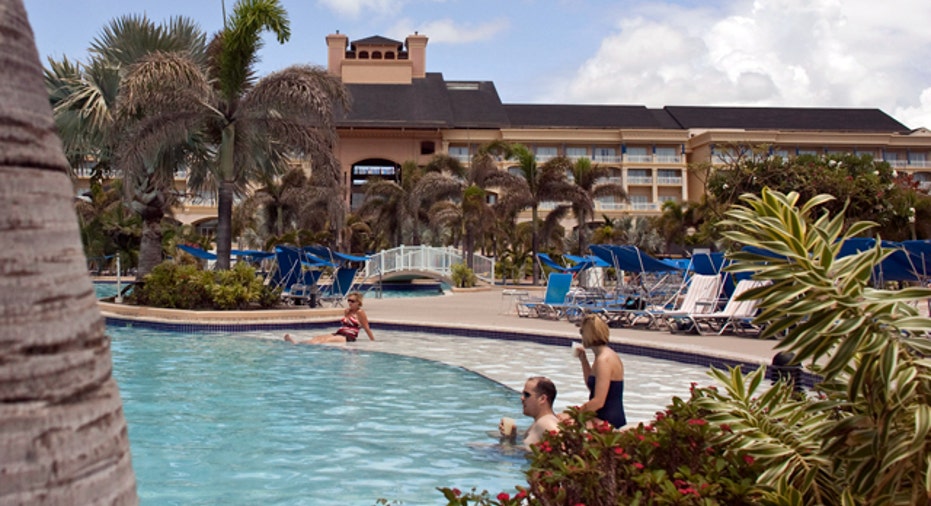5 Questions to Ask Before Buying a Vacation Home

Some people dream of buying a vacation home in a land of balmy breezes, rustling palm fronds and crystal clear waters. Others prefer a cabin in the woods or a quiet retreat in the mountains.
But whatever type of second home you covet, there is probably one thing you share in common with most other buyers, says Jim Gontjes, director of product management for Foremost Insurance.
"Many people don't think about insurance until after they purchase a property," Gontjes says.
That can be a mistake. While price is the chief concern when buying a vacation home, it's important not to overlook how much it will cost to insure your new vacation digs before you lock into a contract.
Following are five home insurance-related questions you should ask yourself when considering the purchase of a dream vacation home.
Is the home located in a high-risk zone?
A property's location can have a big impact on how much you'll pay in home insurance rates. Is the home in an area that's susceptible to floods or hurricanes? Is it in a zone that's at risk for wild fires?
Properties located in such areas fall into the "high risk" category and are more difficult to insure. When you do finally find coverage, you'll likely end up with a larger insurance bill.
"With insurance, you pay according to risk," says Dick Luedke, a spokesperson for State Farm Insurance.
For example, if you live in a flood zone, "in most cases, your lender will obligate you to buy certain coverage, such as flood coverage," Luedke says.
Even if the property isn't in a high-risk area, it still can make sense to opt for additional coverage, which can provide peace of mind.
"Floods don't only happen in flood zones," Luedke says. "The important questions to ask yourself are 'Do I need flood coverage?' and 'If a flood does occur, will I be able to afford to pay for the damage?'"
Does the home have a swimming pool?
A swimming pool may seem like a source of innocent fun on a warm summer day. But pools also create higher levels of risk - and increased insurance costs - for their owners.
"A vacation home with a pool means higher liability for the property, which most likely means higher insurance costs than if it didn't have a pool," Gontjes says.
If someone sneaks onto your property uninvited and drowns in the pool, you could be sued by their loved ones. That's why it's crucial to have adequate liability coverage.
Does the home have security features?
Your vacation home probably will be left unattended for long periods of time. Installing a security system can give you an added sense of comfort - and it might even reduce your insurance payments.
"Devices like alarm systems, fire extinguishers, or other security features will not only help keep your family safe in an emergency, they may save you money on your insurance," Gontjes says.
If you're going to buy a vacation home, Luedke urges you to make sure that a security company monitors the alarm system.
State Farm will give you a discount if you have "an alarm system that reports to a central reporting agency, not just one that rings in the home," Luedke says.
Luedke says that in most states, State Farm will offer a 10 percent discount on your rate if you have extra security features such as deadbolt locks, a fire extinguisher and a fire or burglar alarm that reports directly to a fire department, police department or some other central station.
Is the home in a gated community?
If your prospective vacation home is located in a gated community, the added security might be reflected in your insurance premiums.
"Properties located within gated communities typically provide greater protection and thus may even reduce your premiums," says Gontjes.
Do I plan to rent out the home?
If you do plan to take advantage of the home's potential for rental income, you will likely have to obtain the proper liability coverage -- typically a landlord's policy - which will add to your insurance costs.
However, in some circumstances, such as accepting a boarder, "you can have renters in your home without needing a landlord's policy," says Luedke.
For example, Luedke says State Farm automatically covers the liability incurred by its insurance customers for up to two roomers or boarders. More than two requires an endorsement for that liability coverage, he says.
Related topics:
The original article can be found at Insurance.com:5 questions to ask before buying a vacation home
var gDomain='www.qsstats.com', gDcsId='dcsdpj83010000k7nufoumdgq_7b6d', gFpc='WT_FPC', gConvert=true, gTag=''+'IPT>'; if((typeof(gConvert)!='undefined') && gConvert && (document.cookie.indexOf(gFpc+'=') == -1) && (document.cookie.indexOf('WTLOPTOUT=')==-1)) {document.write(gTag);} function dcsAdditionalParameters(){WT.qs_osrc="fxb";}



















